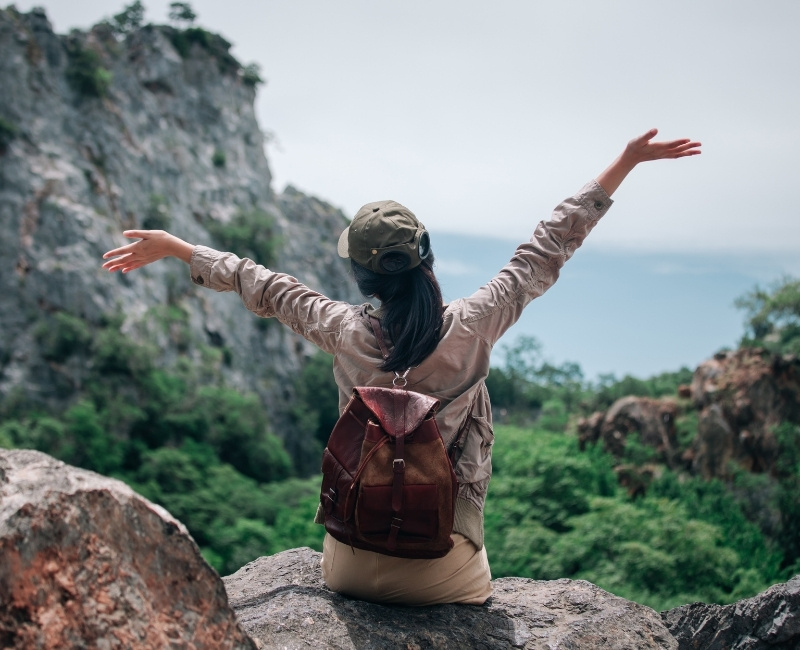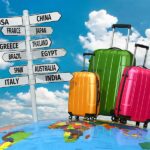
Traveling is not just about moving from one place to another; it is a profound journey that stretches far beyond the physical act of going from point A to point B. It is a transformative experience that opens our eyes to new cultures, broadens our perspectives, and enriches our lives in ways we could never have imagined. In this article, we will explore the multifaceted nature of traveling, delving into the cultural, personal, and educational aspects that make it a unique and indispensable part of the human experience.
Cultural Exploration
One of the most compelling aspects of travel is the opportunity to immerse oneself in different cultures. Each destination holds a unique tapestry of traditions, customs, and history, waiting to be discovered. Whether it’s wandering through the ancient streets of Rome, savoring street food in Bangkok, or marveling at the architecture of Tokyo, every place has a story to tell.
Cultural exploration goes beyond visiting landmarks and historical sites. It involves engaging with locals, trying local cuisines, and understanding the rhythm of everyday life. This immersion allows travelers to gain a deeper appreciation for diversity and fosters cross-cultural understanding. The world becomes a mosaic of perspectives, and the traveler becomes a storyteller, weaving together the threads of various cultures into their own narrative.
Personal Growth
Traveling is a catalyst for personal growth and self-discovery. Stepping out of one’s comfort zone and navigating the unknown forces individuals to adapt, problem-solve, and embrace uncertainty. Whether it’s navigating the bustling streets of a foreign city or trying to communicate in a language one barely knows, each challenge becomes an opportunity for growth.
The encounters and experiences during travel often lead to a greater understanding of oneself. The solitude of a solo journey or the shared laughter with newfound friends creates a space for introspection. The challenges faced and conquered on the road build resilience, confidence, and a sense of independence. Travel becomes a mirror reflecting one’s strengths and weaknesses, encouraging personal development and self-awareness.
Educational Enrichment
Beyond the classrooms and textbooks, travel offers a unique form of education. It is a living, breathing classroom where history, geography, and sociology come to life. Walking through the ruins of Machu Picchu, witnessing the Northern Lights in Scandinavia, or exploring the Great Barrier Reef – these experiences imprint knowledge in a way that no lecture ever could.
Traveling fosters a love for learning through direct exposure to different environments and cultures. It encourages curiosity and a thirst for knowledge that extends beyond the boundaries of formal education. Whether it’s understanding the ecological diversity of a rainforest or delving into the intricacies of local art and crafts, every journey becomes an opportunity to learn something new.
Community and Connection
Traveling has the remarkable ability to create connections and build bridges between people. Whether it’s striking up a conversation with a fellow traveler on a train, sharing stories with a local artisan, or experiencing the warmth of a homestay, travel fosters a sense of community that transcends borders.
These connections, often fleeting but profound, contribute to a sense of global citizenship. Travelers become ambassadors of goodwill, carrying with them the shared experiences and understanding gained through their journeys. This interconnectedness is a powerful force that has the potential to break down stereotypes, promote empathy, and create a more harmonious world.
Preservation of Natural and Cultural Heritage
Travel, when done responsibly, can also contribute to the preservation of natural and cultural heritage. Sustainable tourism practices aim to minimize the environmental impact of travel and promote the conservation of local ecosystems. By supporting eco-friendly accommodations, engaging in wildlife conservation efforts, and respecting cultural traditions, travelers become stewards of the places they visit.
Conclusion
The act of traveling is a multifaceted experience that transcends mere movement. It is a journey of cultural exploration, personal growth, educational enrichment, and community building. Through travel, individuals gain a deeper understanding of the world, forge meaningful connections, and contribute to the preservation of our planet’s diverse heritage.
As we navigate the intricate web of destinations and experiences, let us remember that travel is not just a physical movement; it is a profound odyssey that shapes who we are and how we perceive the world. So, pack your bags, open your mind, and embark on the transformative power of travel – for the road less traveled often leads to the most extraordinary discoveries.








